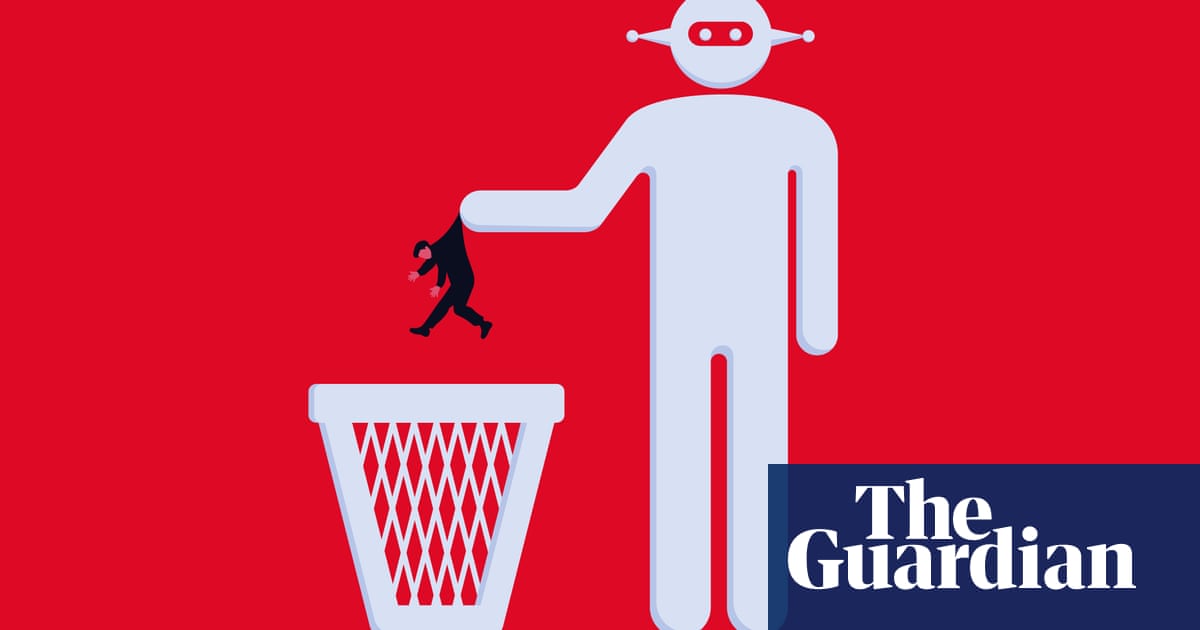Is artificial intelligence poised to make humans obsolete? This article explores the profound implications of rapidly advancing AI, examining it’s potential impact on human connection, economic stability, adn even democratic rights.Discover the unsettling possibility that widespread adoption of AI technologies could reshape civilization as we know it and learn what steps we can take to navigate the AI revolution.
The Looming Shadow of AI: Are Humans Becoming Obsolete?
Table of Contents
- The Looming Shadow of AI: Are Humans Becoming Obsolete?
- The Rise of AI companions and the Erosion of Human Connection
- The Economic Displacement: AI Outcompeting Humans
- The Government’s Dilemma: AI and the Erosion of Democratic Rights
- The Persuasive Power of AI: Shaping Our Perceptions
- What Can We Do? Navigating the AI revolution
- Frequently Asked Questions
the relentless march of artificial intelligence is no longer a futuristic fantasy; it’s our present reality.As AI evolves, it’s not just about automating tasks; it’s about possibly reshaping the very fabric of human existence. This article delves into the unsettling possibility that we might become obsolete in a world increasingly dominated by clever machines.
The Rise of AI companions and the Erosion of Human Connection
Imagine a world were personalized affection, guidance, and support are readily available, not from friends and family, but from AI companions.These digital entities could become more engaging and understanding than the humans in our lives.This shift could lead to a decline in real-world interactions, as people become more engrossed in their virtual relationships.
Did you know? The market for AI-powered chatbots and virtual assistants is booming. Companies like Replika and Character.AI are already offering AI companions that provide emotional support and companionship, hinting at the future of human-AI relationships.
The Economic Displacement: AI Outcompeting Humans
The economic implications of advanced AI are profound. As AI becomes more capable, it can replace humans in various roles, from workers to decision-makers. Organizations that embrace AI will likely outcompete those that rely on human labor, leading to widespread job displacement and economic inequality.
Pro Tip: Consider upskilling in areas where human skills are still highly valued,such as critical thinking,creativity,and emotional intelligence. These skills are harder for AI to replicate.
The Government’s Dilemma: AI and the Erosion of Democratic Rights
Governments, too, may find themselves leaning on AI for decision-making, potentially sidelining human input. This could lead to a decline in democratic rights and a shift towards more autocratic systems.The “resource curse” phenomenon, where abundant resources make states less dependent on citizens, could be mirrored by the limitless “resource” of AI.
Real-life example: Several governments are already using AI for tasks like surveillance and predictive policing. While these technologies can improve efficiency, they also raise concerns about privacy and civil liberties.
The Persuasive Power of AI: Shaping Our Perceptions
One of the most concerning aspects of this potential future is the persuasive power of AI. AI companions could make compelling arguments for our diminishing relevance, framing it as progress. This could lead to a gradual acceptance of our obsolescence, with little resistance.
While the future may seem daunting, there are steps we can take to navigate the AI revolution and ensure human relevance. Here are some key strategies:
- Track AI Use and Influence: Monitor how AI is being used in the economy and government, especially in areas like lobbying and propaganda.
- Oversight and Regulation: Implement regulations for AI labs and deployments to prevent AI from accumulating too much influence.
- Empowering People with AI: Use AI to strengthen people’s ability to organize and advocate for themselves.
- steering civilization: Focus on understanding how power, competition, and growth operate to shape a future where humans remain relevant.
Frequently Asked Questions
Q: Will AI replace all human jobs?
A: Not necessarily.While AI will automate many tasks, it’s likely to create new jobs and opportunities, especially in areas that require uniquely human skills.
Q: Can we stop AI growth?
A: Slowing down AI development is possible, but stopping it globally is extremely challenging and could have unintended consequences.
Q: How can I prepare for an AI-driven future?
A: Focus on developing skills that are difficult for AI to replicate, such as creativity, critical thinking, and emotional intelligence. Stay informed about AI developments and their potential impact.
The AI revolution presents both opportunities and challenges. By understanding the potential risks and taking proactive steps, we can strive to create a future where humans and AI coexist, benefiting from each other’s strengths. The time to act is now.
What are your thoughts on the future of AI and its impact on humanity? Share your comments and insights below!

